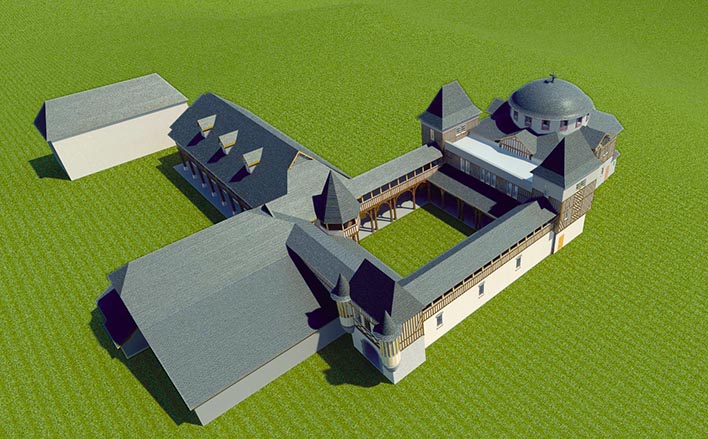
An ideal


A monastery
A challenge





St. Pachomius or St. Macarius in Egypt, St. Euthymius, St. Theodosius or St. Sabbas in Palestine, St. Sergius of Radonezh and St. Nilus of Sora in Russia, St. Athanasius in Meteora and St. Athanasius of Mount Athos: wherever the Church is located, monasticism flourished by thousands and the monks and their monasteries were built based on the successive needs of their communities. In each monastery, the treasurer and a few monks fulfilled their obedience to develop plans, direct the work as directed by their spiritual father and abbot, with the help of his council, according to the spirit of the monastic Rule that all the disciples followed to find God and consecrate their lives to him. They do this under the enlightened leadership of the spiritual father who, with discernment and moderation, accompanied them that followed him, they were sure that he knew the way of salvation and of union with God and that he would pass this onto them via his prayers, his example and teaching.
The monastic ideal remains the same.
However, there was a time when princes and lords, aware of the vital function of the monasteries in the moral and spiritual edification of the entire people, helped them by giving them a regular income for life for a defined number of monks or nuns. By doing this they were ensured prayers from the community for their life with God, for themselves and for their families. And the monks could, in turn, freely go about their spiritual pursuits: prayers, holy services, spiritual reading, welcome guests or allegiances useful to the Church denominations such as writing books or making clerical vestments and liturgical ornaments, without counting the work in the field or the garden, all in a calm and peaceful atmosphere.
In this, the times have changed.
Indeed, the monks are now obliged to provide only for their needs, and for the heavy, but necessary burden of hosting. Nowhere are monasteries exempt from public taxes; they must pay social taxes as it is the law. But this contradicts the evangelical ideal that the disciple of Christ must not worry about the future! The construction, maintenance, heating, lighting and food are totally dependent on them. They receive no external contribution, allowances, subsidies, state, regional, or church aid, except manual donations from their closest faithful. The requirements of the monastic rhythm are not eased, however, and their regular and charitable obligations remain the same. The time spent in personal and liturgical prayer does not allow them to undertake remunerative work "in the world" with schedules "of the world". Also we ask the faithful and potential benefactors not to scandalize monetary claims for which the monks are not made. They are, however, obliged to take on this new form of obedience.
They do not sell their ideal to enrich themselves or to live comfortably, but they humbly seek the help of those who are able in order to continue to exercise their ecclesial and spiritual service with peace, simplicity and poverty, for the sake of the entire people -
May all those who will help our monastery, to a greater or lesser degree, be thanked in advance, be blessed by God and sure of our gratitude toward them and our prayers to God to help them in their daily lives and for their eternal salvation, so they may experiment with joy the first fruits thereof in this "earthly" world.

Conclusion
| The other parts of the area |
| Origin and location of the monastery |
| Daily life |
| Breeding sheep |
| A typical day |